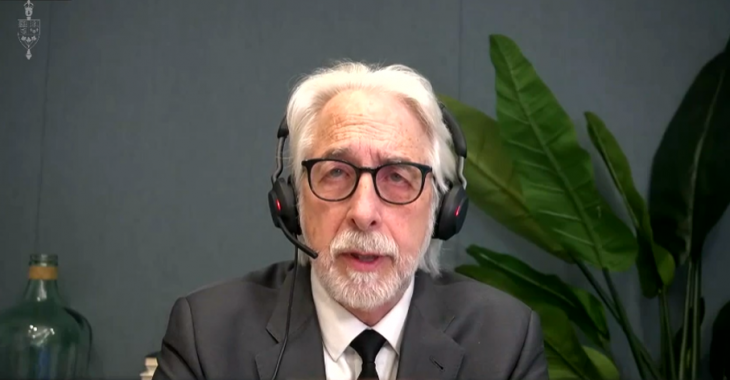
By Christopher Guly
OTTAWA — Despite its recent test to limit news for some users in response to its objections to bill C-18, “Google is deeply committed to Canada” and is “one of the world’s biggest supporters of journalism,” Kent Walker, president of global affairs and chief legal officer of the search-engine giant and its parent company, Alphabet Inc.
“We believe that the legislation could be amended to support journalism and to provide consumers with a more diverse range of perspectives delivered in innovative and accessible formats, without undercutting core principles that allow the internet to benefit Canadians and people around the world,” he told members of the House of Commons Standing Committee on Canadian Heritage on Thursday.
He added there are “thoughtful alternatives we believe would be more effective in achieving the underlying policy goals” of the Online News Act, which would require online platforms, such as Google and Facebook, to compensate news publications for linking to their work.
Currently at second reading in the Senate, bill C-18 would establish “a framework through which digital news intermediary operators and news businesses may enter into agreements respecting news content that is made available by digital news intermediaries.”
As an alternative, Walker proposed a fund “to which Google would contribute, but that would be independently governed.”
“Proceeds from this fund would be distributed consistent with clear criteria, governed by an independent board of experts, in line with the approach already adopted by Canada through its journalism [labour] tax credit,” he explained.
“This is not the path that C-18 is currently on.”
In a brief presented to the Heritage committee, Google Canada argued that C-18 would force it “to subsidize outlets that do not adhere to any journalistic standards, creating a regime that allows bad actors and those peddling misinformation to thrive and profit.”
Last month, Walker and Richard Gingras, Google’s vice-president for news, along with Alphabet CEO Sundar Pichai, declined to appear before the committee.
It was left to Sabrina Geremia, vice president and country managing director for Google Canada, to face questions from members from all parties on the committee who became increasingly frustrated with her failure to provide the information they sought on the company’s test, prompting Ontario New Democrat MP Lindsay Mathyssen to ask her why Google was “voluntarily engaging in censorship of news content” in response to a bill it claims is engaging in censorship.
Geremia said the tests, which ran for five weeks, were conducted because of the “uncertainty” surrounding the legislation and “the potential impact” of it on Google.
Thursday’s hearing was far less combative, with MPs receiving more fulsome answers to their questions.
Gingras, who 15 years ago served as publisher of Salon.com said Google’s tests involved a random sample of Canadians, based on 3.3 per cent of IP addresses, impacting about 1.1 million addresses.
Hailing Canada for having “the most innovative digital news ecosystem in the world,” he warned that C-18 “would make Canada the first country in the world to put a price of free links to webpages, setting a dangerous precedent that is contrary to the long-term interests of both Canadian readers and Canada’s independent press.”
Last year, Google directed more than 3.6 billion visits to Canadian news publishers, “helping grow their audiences, and make money through ads and subscriptions,” according to Gingras, who noted that referral traffic was valued at $250 million.
“Putting a price on links, as C-18 does, will naturally cause any company to reconsider how they use them,” he said.
“If we must pay publishers simply for linking to their sites, making us lose money with every click, it would reasonable be for us – or any business – to reconsider why we would continue to do so.”
Gingras said C-18 “would subsidize large legacy organizations and broadcasters to a far greater extent than smaller, emerging and innovative organizations that provide quality local news to communities, placing them at a comparative disadvantage.”
CBC/Radio-Canada president and CEO Catherine Tait has said that with C-18, “we’ll see some dollars flowing to newsrooms for the support of Canadian journalists.”
In an interview with Cartt, she explained that “with whatever deal we would be able to strike with Google or Facebook, we would be transparent about what we do with any dollars earned and we would be very clear about deploying those dollars in the support of news in the region.”
“That literally means more boots on the ground.”
Gingras said he believes the Online News Act would encourage the emergence of sensational headlines to attract eyeballs.
“It would incentivize the creation of click-bait content over high-quality local journalism, and likely require Google to pay publishers for non-factual or misleading content,” he said.
Screenshot of Richard Gingras at the House Heritage hearing Thursday.



